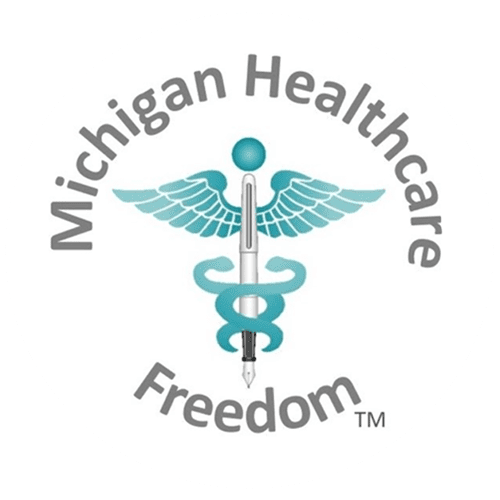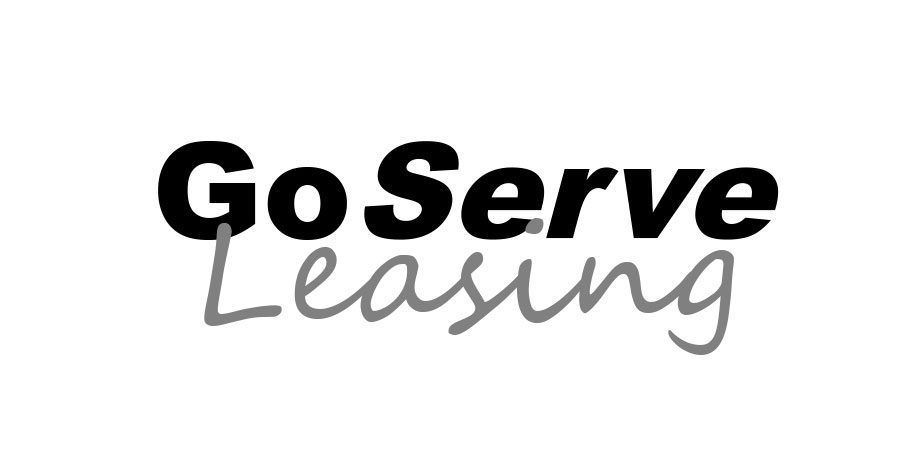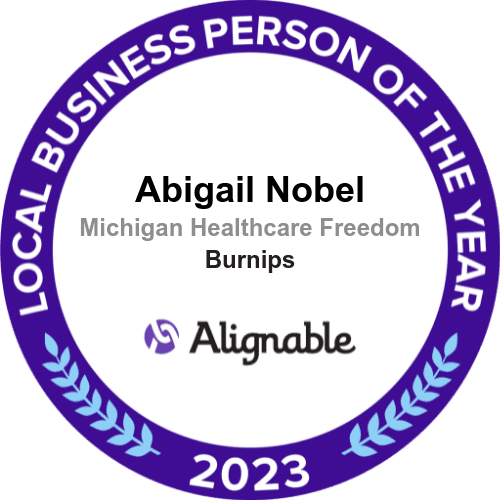
The Evolution of the US Healthcare System
Hillsdale College Free Online Courses - Chemistry, Economics, History, and more, all from a perspective of freedom
The Law, by Frederic Bastiat (1801-1850)
Economics in One Lesson, by Henry Hazlitt
Bureaucracy as a Public Health Threat - absolutely inspiring! Dr. Bricker gathers information about bureaucracies and how to bust them to get important things done. (Like healthcare.)
It's worth checking the rest of the Youtube video series to see if they're anything like this one.
AHealthcareZ is Healthcare Finance Explained. Learn how the US healthcare system works... or doesn't work.
Video topics include healthcare costs, health insurance, hospital finance, prescription costs, healthcare policy, Medicare, Medicaid, employer-sponsored healthcare and patient out-of-pocket costs
Dr. Eric Bricker is an Internal Medicine Physician and the former Co-Founder and Chief Medical Officer of Compass Professional Health Services.
Paragon Health Institute is an extremely active free market healthcare think tank with some innovative ideas. You can follow new articles, podcasts, and videos here: https://paragoninstitute.org/impact/
Its initial November 2021 press release overviews their mission and a remarkable list of author members.
Health Policy Experts Launch Paragon Health Institute to Develop Policies That Will Reform Government Programs and Improve Americans’ Health
Paragon’s efforts will rely on free-market solutions, innovation, patient choice, and competition
WASHINGTON –– Leading health policy experts today launched Paragon Health Institute, a research center that will deliver innovative policy solutions that empower Americans to control their health care decisions and finances, cut bureaucracy and red tape, and reform government programs.
Paragon will be led by Brian Blase, Ph.D., who from 2017-2019 served as special assistant at the White House National Economic Council, along with some of the nation’s most impactful health policy leaders with experience crafting federal and state reforms, including reforming Medicare and Medicaid, expanding coverage options for employers and workers, and reducing regulatory barriers to enhance market competition and innovation. These uniquely qualified leaders have the expertise needed to properly evaluate existing government programs and develop constructive plans for implementing important policy reforms.
“The public health policy debate is overwhelmingly centered on growing the government’s role––rarely is it focused on how government programs can work better and what is most important for health and overall well-being,” said Paragon Health Institute’s President Brian Blase.
Paragon Health Institute will be a counterweight to that imbalance, generating state and federal policy solutions that give patients control of their health care finances with better information about prices and quality. Paragon’s experts will study government program results and contrast government-centric approaches with more market-oriented health policies.
Paragon will “develop policies that address the biggest challenges in health care by empowering patients to drive their care, as well as harnessing competition and innovation to increase access and improve quality,” said Demetrios L. Kouzoukas, the chief executive of the Medicare program at the Centers for Medicare and Medicaid Services from 2017 through 2021. Kouzoukas will lead Paragon’s Medicare initiative.
Paragon’s policy advisors are uniquely positioned to draw on medicine, law, economics, and public policy to formulate effective policies and challenge the entrenched forces that perpetuate an inefficient status quo. The team is also situated to cultivate a generation of future policy champions by educating policymakers and thought leaders on market-based health policy ideas.
“This exciting effort convenes a broad range of health care leaders to think big and bold about how we can improve the delivery of care,” said Dr. Marty Makary, a leading physician, health policy expert, and professor at Johns Hopkins University School of Medicine and Carey School. Dr. Makary is the author of the recently released book, “The Price We Pay: What Broke American Health Care–and How to Fix It.” Dr. Makary serves as a Paragon Health Institute public advisor.
-end-
Background:
Paragon Health Institute leadership team includes:
Paragon’s President, Brian C. Blase, PhD, developed, coordinated, and led implementation of many Trump administration health policies as a special assistant for economic policy at the White House’s National Economic Council from 2017-2019. Since leaving the White House, Brian launched Blase Policy Strategies, has authored nearly 20 research studies, and has had numerous articles in The Wall Street Journal, The New York Post, Forbes, and The Hill, among other outlets. Prior to working at the White House, Brian held senior roles at the U.S. House Committee on Oversight and Government Reform and the Senate Republican Policy Committee. Brian is also serving as Director of Paragon’s Private Health Reform Initiative.
Caroline DeBerry, Vice President. Caroline DeBerry has been in government and public service for over 17 years. She was a senior federal appointee, congressional staffer, founder of a consulting firm, and a chief officer for an international nonprofit that provides free health clinics. Caroline has worked on several important pieces of legislation, including provisions in the 2020 CARES Act, 21st Century Cures Act, FY19 National Defense Authorization Act, among others. Caroline has ghostwritten law books and other works and wrote her own book, The Renewal of Independence, published in 2010.
Demetrios L. Kouzoukas is the Director of Paragon Health Institute’s Medicare Reform Initiative. He was the chief executive of the Medicare program from 2017 to 2021, during which time he delivered successively lower payment error rates each year, brought about extraordinary reductions in Medicare Advantage premiums, and rewired policies and operations across the board in response to the COVID-19 pandemic. Kouzoukas’s strategic vision revolutionized Medicare payments for telehealth, maximized access for patients to medical technology innovations, expanded Medicare Advantage supplemental benefits to address chronic disease and social determinants of health, instituted landmark price transparency, and overhauled the skilled nursing facility and home health payment systems.
Gary D. Alexander, J.D., MDiv., is the Director of Paragon Health Institute’s Medicaid and Health Care Safety Net Initiative. For more than 20 years, he has transformed large underperforming government agencies into accountable, value-oriented, and performance-driven systems. As Pennsylvania’s Secretary of Human Services and Rhode Island’s Secretary of Health and Human Services and Medicaid Director, Alexander created structural reforms like the Medicaid Global Waiver and the Enterprise Program Integrity Initiative. These waivers delivered unprecedented flexibility to redesign Medicaid programs and reduce fraud and abuse.
Joel M. Zinberg, M.D., J.D., is the Director of Paragon Health Institute’s Public Health and American Well-Being Initiative. Dr. Zinberg has been involved with health policy issues and the interaction between law and medicine for his entire career. He is a senior fellow at the Competitive Enterprise Institute. Previously, he was the general counsel and a senior economist at the White House Council of Economic Advisers, 2017-2019. He practiced general and oncologic surgery in New York for nearly 30 years where he is an Associate Clinical Professor of Surgery at the Icahn Mount Sinai School of Medicine, taught at the Columbia University Law School, and has written for publications as varied as the Journal of the American Medical Association, the Bulletin of the American College of Surgeons, The Wall Street Journal, National Review, City Journal, The New York Post, and law reviews.
Paragon Health Institute will also work closely with a roster of leading policy advisors, including:
Amy Anderson
Professor of Nursing and Coordinator for the Doctor of Nursing Practice program at Texas Christian University and the University of North Texas Health Science Center School of Medicine; former counsel to the National Coronavirus Recovery Commission on COVID-19
Doug Badger
Senior Research Fellow at the Galen Institute and The Heritage Foundation; Deputy Assistant to the President for Legislative Affairs (2005-2006); Special Assistant to the President, National Economic Council (2002-2005)
Ge Bai
Professor of Accounting at Johns Hopkins Carey Business School and Health Policy & Management at Bloomberg School of Public Health
Diane Black
Congressman (2011-2019); Chair of House Budget Committee (2017-2019)
Chuck Blahous
J. Fish and Lillian F. Smith Chair at the Mercatus Center; Visiting Fellow at the Hoover Institution; Public trustee for Social Security and Medicare (2010-2015); Deputy Director of the White House National Economic Council (2007-2009)
Dean Clancy
Senior health policy fellow at Americans for Prosperity Associate Director at White House Office of Management and Budget (2004-2006)
John Dreyzehner
Director of the CDC Center for Preparedness and Response (2019-2021), Commissioner of Tennessee’s Department of Health (2011-2019), District Director of the Virginia Department of Health (2002-2011)
Joe Grogan
Assistant to the President & Director of the Domestic Policy Council (2019-2020); Special Assistant to the FDA Commissioner and Executive Director of the Presidential Advisory Council on HIV/AIDS (PACHA) in George W. Bush Administration
Al Hubbard
Assistant to the President for Economic Policy and the Director of the National Economic Council (Jan. 2005-Dec. 2007), Director of the President’s Council on Competitiveness for Pres. George H. W. Bush; Deputy Chief of Staff to Vice President Quayle (1990-1992); co-founder of E&A Companies
Yuval Levin
Senior Fellow and Director of Social, Cultural, and Constitutional Studies, American Enterprise Institute
Naomi Lopez
Director of Health Care Policy, Goldwater Institute
Marty Makary
Professor, John Hopkins University School of Medicine; NYT Best Selling Author of The Price We Pay, Unaccountable
Paul Mango
Deputy Chief of Staff to HHS Secretary Azar (2019-2021), formal liaison to Operation Warp Speed; former head of McKinsey & Company’s Global Healthcare Practice
Casey Mulligan
Professor of Economics at the University of Chicago; visiting professor of public economics at Harvard and Clemson Universities; Chief Economist at the White House Council of Economic Advisers (2018-2019), author of You’re Hired!, Chicago Price Theory, Side Effects and Complications, and The Redistribution Recession
Steve Parente
Minnesota Insurance Industry Chair of Health Finance in Carlson School of Management at the University of Minnesota and Associate Dean of the Carlson Global Institute; Chief Economist for Health Policy on Council of Economic Advisers (2019-2021); Senior Advisor to the Secretary for Health Economics at HHS; advisor to the Congressional Budget Office
Tomas Philipson
Professor of Economics at the University of Chicago; visiting faculty member at Yale University; Chairman of the White House Council of Economic Advisers (2019-2020)
Roy Ramthun
Founder and President of HSA Consulting Services; Special Assistant to the President for Economic Policy at the National Economic Council (2005-2006); Senior Advisor to the Secretary of Treasury (2003-2005)
Carl Schramm
University Professor, Syracuse University. Former President, Kauffman Foundation. Former CEO, Fortis Healthcare. Chaired Commerce Dept. Committee on Innovation in the 21st Century. Founder, Johns Hopkins Center for Hospital Finance and Management. Author, Burn the Business Plan; co-author Good Capitalism/Bad Capitalism with William Baumol and Robert Litan. Co-chaired Public/Private Partnerships – White House Startup America Initiative. Serves on the COVID Commission Planning Group
Abe Sutton
Investment Professional at Rubicon Founders; policy advisor at the Domestic Policy Council (2019)
Tevi Troy
Senior Fellow at the Bipartisan Policy Center; Deputy Secretary at the Department of Health and Human Services (2007-2009); Deputy Assistant to the President for Domestic Policy (2005-2007)
Grace-Marie Turner
Founder and President of the Galen Institute
Eric Ueland
Acting Principal Deputy Assistant Secretary at the Department of State (2020); Assistant to the President and Director of Legislative Affairs at the White House (2019-2020); Republican Staff Director of the United States Senate Committee on the Budget, Chief of Staff for the Senate Majority Leader Bill Frist and Assistant Majority Leader Don Nickles
Larry Van Horn
Executive Director of Health Affairs and Founder and Director of the Center of Health Care Market Innovation at Vanderbilt University; Co-Director of Nashville Health Care Council Fellows Program; advised the White House with the June 24, 2019 Executive Order on price transparency; member of the HHS Quality Summit Panel
Stephanie Zawada
Dean’s Fellow and PhD student at Mayo Clinic; Bastiat Fellow at the Mercatus Center; Innovation Partners Fellow at Mount Sinai; former Yale University-Mayo Clinic FDA Center of Excellence in Regulatory Science and Innovation Scholar
We're badly over-legislated, which destabilizes local healthcare and raises costs. A recent Detroit News opinion piece offers a helpful mindset-shift.
Emphasis in bold by me.
Reitz: 7 questions to ask about any policy proposal
Voters want to understand vast and complex public policy ideas, ranging from the One Big Beautiful Bill Act to ballot measures before Michigan voters to road-funding deals percolating in the Michigan Legislature. But there are so many issues. People are busy and probably won’t develop a broad range of policy expertise. So it can be easy to judge a bill using weak indicators like which party proposed the idea or who endorsed it.
It’s worth digging deeper to understand what a bill will actually do. Here are seven ideas to help with that analysis.
One: Policy proposals seek either to fix a problem or to create some desired outcome. So, what problem does the legislation try to fix? Will it fix the problem or merely mask it?
Here’s an example: Michigan students are not learning to read well, which inhibits educational outcomes. In 2016, the Michigan Legislature enacted a law to have students repeat the third grade if they were not reading at grade level. In 2023, the Legislature and Gov. Gretchen Whitmer repealed this law. Repealing the student retention law doesn’t fix reading scores but only kicks the problem down the road.
Two: When analyzing a policy idea, ask, “Who will pay for this?” Is it a broadly applied tax increase or a targeted fee? Does the proposal reprioritize public funds that had been used for lower-priority programs?
Three: Who benefits from the proposed policy? Does it help most people, or does it offer benefits to a narrow few? The Michigan Economic Development Corporation currently faces scrutiny for giving a $20 million grant to a Whitmer campaign donor. Most people understand the inherent unfairness of programs that serve a well-connected few.
Four: Does the proposal get the government out of the way or grow its footprint? When something bad happens in society, a natural reaction is for people to call for a change. “How did we allow this?” they ask. “There ought to be a law!”
Creating a new agency or new government program may give the impression of action, but it is foolish to grow government in response to every crisis. Can civil society address the problem? Can private philanthropy address it?
Five: Does this idea restrict government power or does it restrict people? Five years ago, we saw major assertions of government power with the COVID-19 lockdowns. The state regulated who could work, who could go outside, what kinds of gatherings were allowed and what you were allowed to buy. Meanwhile, state and local governments eased requirements that applied to them, such as transparency rules.
Six: “A government program is the nearest thing to eternal life we’ll ever see on this earth,” Ronald Reagan said. When analyzing a new proposal, ask whether the program should run indefinitely. New taxes are difficult to repeal because public agencies become dependent on the revenue.
When a program enjoys a dedicated revenue stream, that’s hard to change as well. For example, in Michigan some of the sales tax on gas goes to the School Aid Fund. Any debate about road funding triggers discussions about education funding because the two are connected. Similarly, new entitlement programs are politically difficult to reduce or end.
Seven: What are the long-term consequences of this idea? The government response to COVID-19 showed us that an attempt to fix one problem led to many others. State-mandated lockdowns hampered student learning, shuttered small businesses and put people out work.
Every policy idea involves tradeoffs. These questions help identify those tradeoffs.
Michael J. Reitz is executive vice president of the Mackinac Center for Public Policy.







